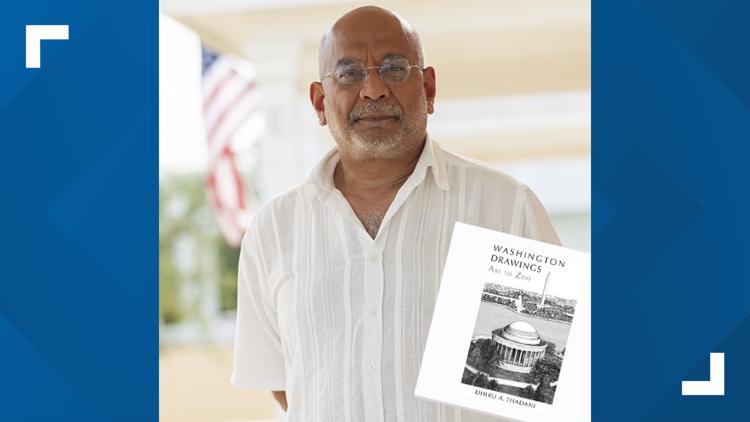WASHINGTON — Dhiru Thadani has lived in the District for 50 years now - but his love affair with the city was, at first, a slow burn.
Born in Mumbai, India, Thadani made his brave trek across the ocean to study architecture in D.C. when he was just 17 years old in 1972 at the Catholic University of America. With the city suffering from the backlash of the '60s riots, the days of no Metro and his memories of the poor bus service, his introduction to the city was off to a rocky start.
That all changed with the help of a few impassioned professors and talented professionals who helped him see the beauty designed deep into the walls around the District.
Since the '70s, Thadani has flourished as an award-winning architect, author and urban designer, spending every day putting pen to paper and continuing to admire and educate about the city he loves.
"It is, in my mind, the greatest city in America for multiple reasons," he said he's discovered through the years. "One of the things that makes Washington unique is the very beautiful plan done by [Pierre] L'Enfant. And second is the height limitation, which is very unique for an American city."

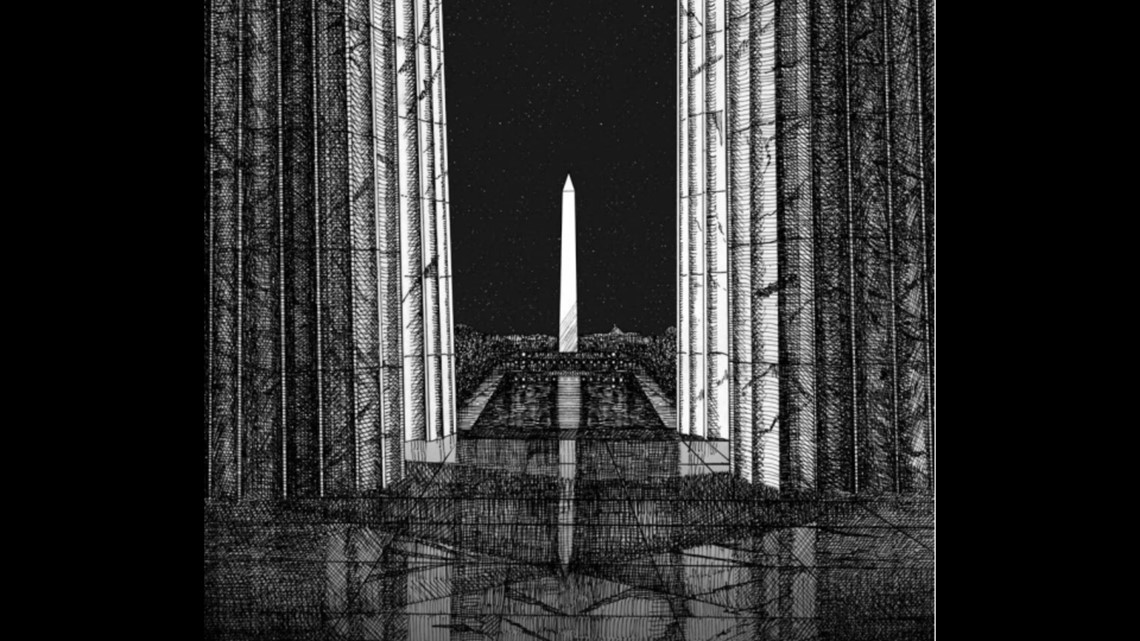
During the COVID-19 pandemic, when his chaotic life of work and travel seemed to slow down, Thadani knew it was the perfect time to get to work on another project. By this July, he was ready to showcase his latest work; "Washington Drawings: Abe to Zoo" a kind of love letter to some of Thadani's favorite moments and history lessons in the city's most beautiful, iconic and unique spaces.
Readers will find that each drawing is organized alphabetically -- one for each letter of the alphabet with text providing context and history about the subject the illustration portrays. In total, the book showcases 26 pen and ink drawings.

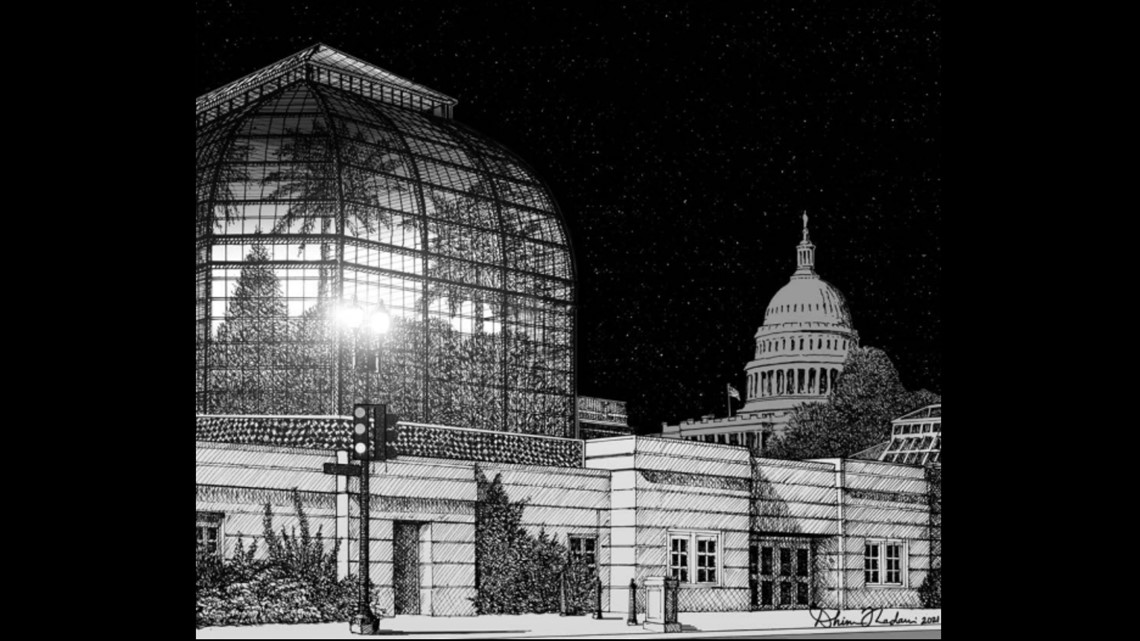
He hopes the book can bring everyone - from politicians passing through to new residents and longtime locals - a deeper understanding of our iconic city and a more intimate view of what they'll see as they explore.
"I was able to interject a lot of notions of diversity, equity," he said about key perspectives he could add to the descriptions. "Other than design architecture; the mistakes that were made [in urban design], mistakes that were corrected."
Thadani reminisces fondly on creating the many illustrations and their descriptions. He used to sit in the car at night and let his pen do the work, adding the reasoning behind why half of the drawings in the book depict a moonlit setting.

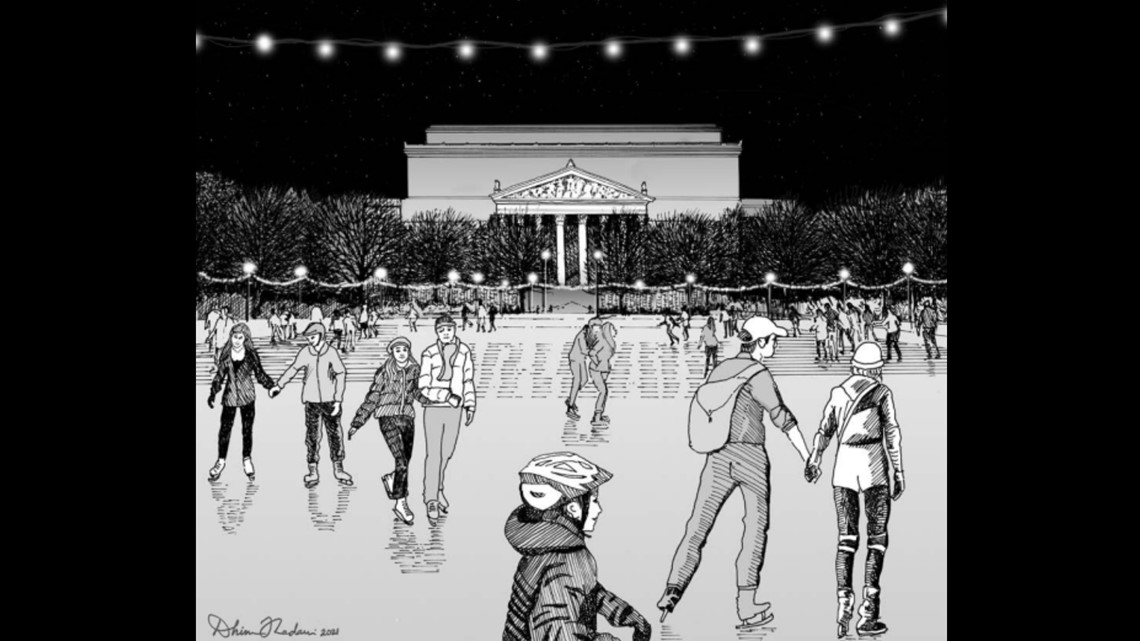
After the book's release, locals had another opportunity to view the intricate drawings up-close: at a special exhibit at one location of the District's independent bookstore, Politics and Prose. However, Thadani feels most gratified by the education on the D.C. cityscape he's able to share through his work and their showings, all thanks to the city's meticulous urban design laid out in the L'Enfant Plan.
"The plan, it has longevity," he said. "So when you make something that people understand even 200 years, 300 years after, it still lives on . . . you can still learn from it. And, you know, learn some really important lessons about public space."

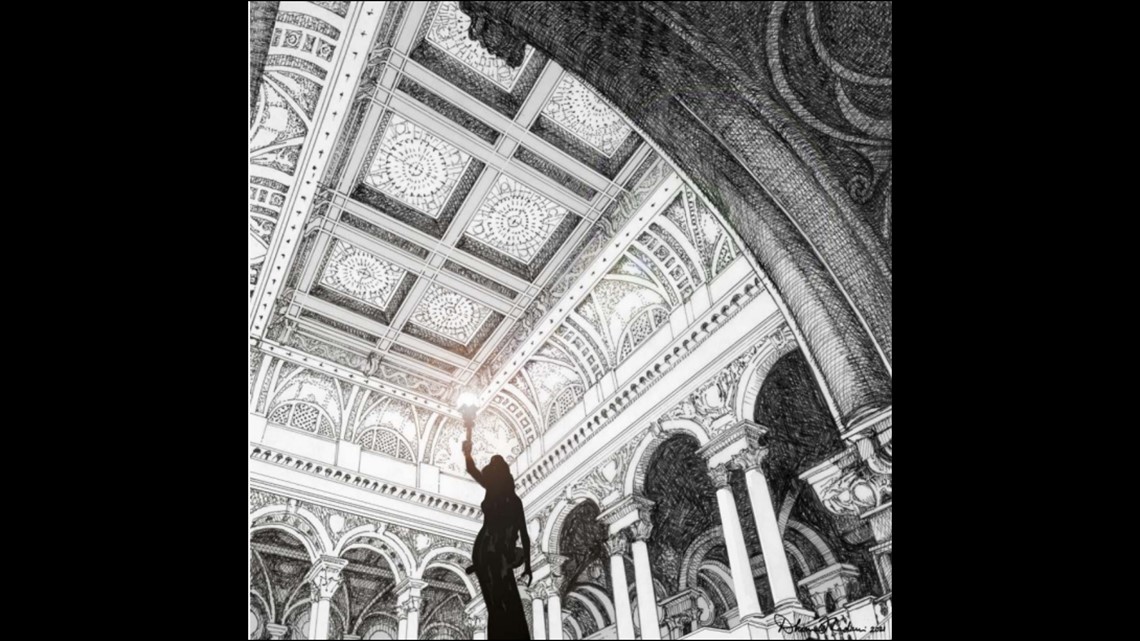
"Washington Drawings: Abe to Zoo" is available at Politics & Prose, the National Building Museum and Dalton Brody or online. Click here to learn more.
Sign up for the Get Up DC newsletter: Your forecast. Your commute. Your news.
Sign up for the Capitol Breach email newsletter, delivering the latest breaking news and a roundup of the investigation into the Capitol Riots on January 6, 2021.
Sign up for the Get Up DC newsletter: Your forecast. Your commute. Your news.
Sign up for the Capitol Breach email newsletter, delivering the latest breaking news and a roundup of the investigation into the Capitol Riots on January 6, 2021.


